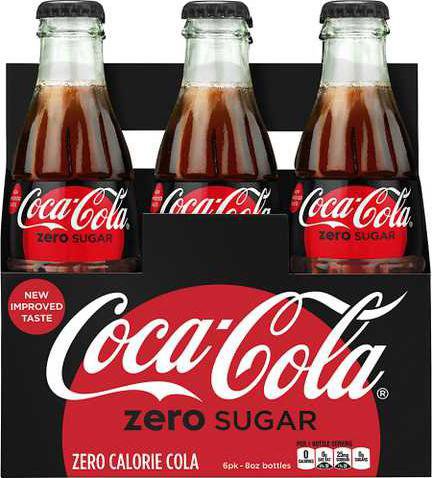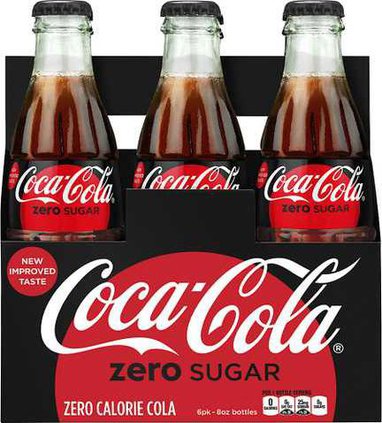Soon, there will be zero chance for you to find a particular Coca-Cola product.
As TIME reported, Coke plans to take Coke Zero off store shelves, replacing it with a new product called Coca-Cola Zero Sugar, which will include an updated look and brand to the drink.
Coca-Cola Zero Sugar will come in can and bottle designs, with a new improved taste, according to TIME.
"Weve made the great taste of Coke Zero even better by optimizing the unique blend of flavors that gave Coke Zero its real Coca-Cola taste," the company said in a press release this week.
Coca-Cola called the redesign an upgrade to the Coke Zero brand.
The new brand will have the famous Coke red with a black background.
The drink will have zero grams of sugar. The company did not say how many calories the drink will have.
Currently, Coke Zero is labeled as having zero sugar and zero calories.
The changes also support our continued efforts to boost promotion of no- and low-sugar Coca-Cola options to help people looking to reduce their consumption of added sugars, according to the press release.
Social media reacted to the news with questions, concerns and celebration.
As TIME reported, Coke plans to take Coke Zero off store shelves, replacing it with a new product called Coca-Cola Zero Sugar, which will include an updated look and brand to the drink.
Coca-Cola Zero Sugar will come in can and bottle designs, with a new improved taste, according to TIME.
"Weve made the great taste of Coke Zero even better by optimizing the unique blend of flavors that gave Coke Zero its real Coca-Cola taste," the company said in a press release this week.
Coca-Cola called the redesign an upgrade to the Coke Zero brand.
The new brand will have the famous Coke red with a black background.
The drink will have zero grams of sugar. The company did not say how many calories the drink will have.
Currently, Coke Zero is labeled as having zero sugar and zero calories.
The changes also support our continued efforts to boost promotion of no- and low-sugar Coca-Cola options to help people looking to reduce their consumption of added sugars, according to the press release.
Social media reacted to the news with questions, concerns and celebration.








